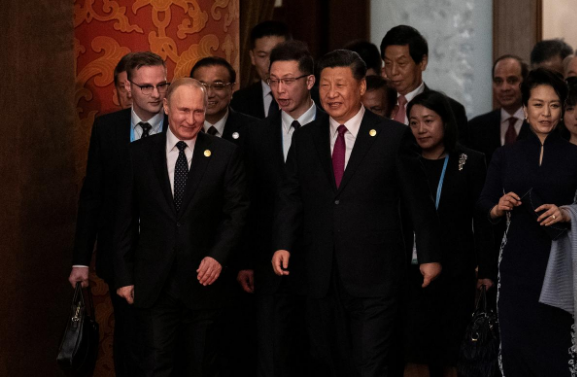Beijing: Chinese President Xi Jinping said the cooperation agreements worth more than $64 billion were signed at a CEO conference during the 2nd Belt and Road Forum (BRF) which concluded here Saturday.
Around 283 items of practical outcomes were achieved during the preparatory process and the holding of the forum, Xi said in a statement before the media Saturday after his roundtable meeting with 37 heads of state and governments who took part in the meeting.
In his address at the roundtable meet, Xi said his trillion-dollar BRI initiative should benefit all around the world and deliver common development by following established international rules and norms.
He again stressed that the BRI would focus on common development of all the participating countries and their people.
“The BRI must be aligned to the United Nations’ sustainable development agenda,” he added.
Those who attended the BRF meeting included Russian President Vladimir Putin, Pakistan Prime Minister Imran Khan and heads of several Asian, African and Latin American countries besides heads of the UN and the IMF. India and the US skipped the meeting.
India, which boycotted the first BRF meeting held in 2017 over its objections to the $60 billion China-Pakistan Economic Corridor (CPEC) being laid through the Pakistan-occupied Kashmir, skipped its second edition for the same reasons.
INDIA’S RESISTANCE
- India has skipped the 2nd edition of BRF
- India boycotted the first BRF meeting in 2017 over its objections to the $60 billion CPEC being laid through the PoK
- India has also been airing its concerns over the BRI financing; urging to avoid projects that would create unsustainable debt burden for communities
The CPEC, which connects Gwadar Port in Pakistan’s Balochistan with China’s Xinjiang province, is the flagship project of the BRI.
India has also been airing its concerns over the BRI financing, saying that connectivity initiatives must follow principles of financial responsibility to avoid projects that would create unsustainable debt burden for communities.
This time the US has emerged as a fierce critic of the BRI, asserting that its predatory financing is leaving the smaller countries in heavy debt.
The concerns grew louder after China acquired Sri Lanka’s Hambantota port for a 99-year lease as a debt swap.
The heavy Chinese financing of the CPEC also raised concerns over Pakistan’s ability to pay back.
China has clarified that less than 20 per cent of the CPEC projects are based on loans provided by it and the rest of the 80 per cent ventures are either directly invested by Beijing or used Chinese grants.
